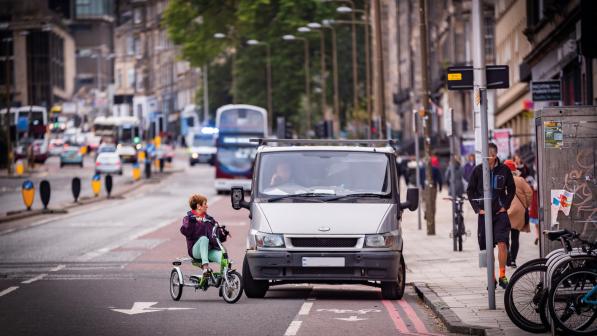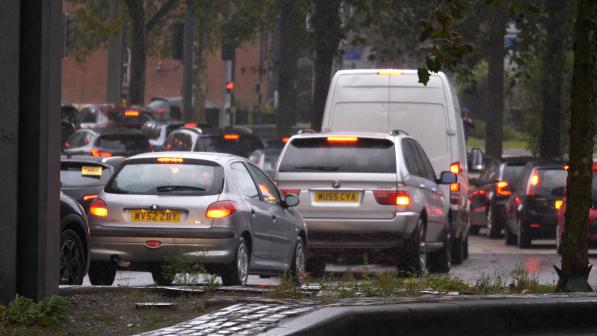Spending review sees guaranteed cycling and walking budget slashed by 15%

The Government has never disputed estimates that it would need to spend between £6bn to £8bn over the next five years to meet its targets for increasing cycling and walking in England by 2025, and made a start back in May promising to spend £2bn over the next five years – i.e., at least £400m each year on average.
While this fell short of the amount required, it did provide a foundation to build upon and suggested councils would have a degree of sustained funding to invest in their active travel networks.
With the economic impact of the Covid-19 pandemic overshadowing today’s spending review, an optimistic outlook was certainly required for anyone expecting extra spending beyond the £2bn.
However, it certainly seemed reasonable to expect an increase from this year’s funding (~£300m) to something closer to the £400m needed to keep spending in line with that £2bn commitment, especially given the Government had set out a ten-point plan for a green industrial revolution just one week ago.
Instead, in a move completely at odds with both the Government’s prior commitments and the targets they have set themselves, the Chancellor today announced a 15% cut in funding for cycling and walking for 2021/22, with spending reduced to just £257m.
The Government’s vision and stated ambition for active travel are impressive, but this spending review takes us backwards when it comes to delivery.
Duncan Dollimore, head of campaigns and advocacy
The move will leave councils struggling to invest in planned cycling and walking networks, and raises serious questions as to how the Government will meet it’s £2bn spending commitment by 2025 without significantly ramping up spending in 2022/3.
Despite this £45 million cut for cycling and walking, the Chancellor will be pouring a whopping £27.4 billion into road building by 2025, even though cycling is repeatedly found to be a significantly better value for money investment, given its role in improving public health outcomes and tackling air pollution and climate change.
And, adding insult to injury, today’s announcement also confirmed £582m in subsidies for electric cars, vans taxis and motorcycles, while e-bikes – widely recognised as a key tool in boosting local mobility and reducing congestion – have been supported by a miniscule £1m pilot scheme for hire schemes.
Responding to the announcement, Duncan Dollimore, Cycling UK’s head of advocacy and campaigns, said:
“The Government’s ‘Gear Change’ document released in the summer set out a bold vision for cycling and walking in England, but neither that nor the promised ‘Green Revolution’ can be delivered without substantially increasing investment.
"The £257 million set aside for active travel next year is less than 1% of the £27.4 billion roads budget the Government remains stubbornly wedded to. Reducing next year’s funding by around £45 million makes the delivery of the Government’s own targets to increase levels of cycling and walking almost impossible, without the radical shift in transport spending priorities required to decarbonise transport.
"The Government’s vision and stated ambition for active travel are impressive, but this spending review takes us backwards when it comes to delivery.”
Although today's announcement is disappointing, it's still vital that councils use the money which is given to them ambitiously, and you can help make that happen by writing to your council leader today.

